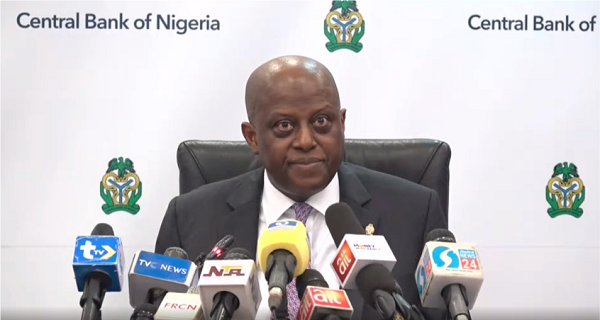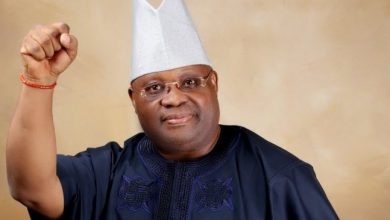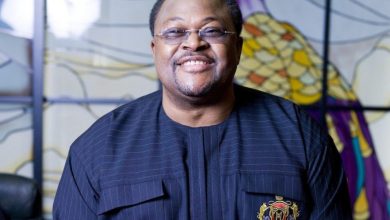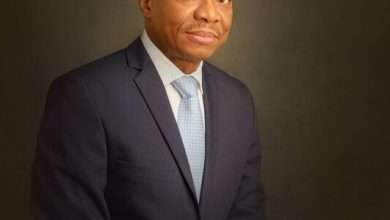CBN: Foreign reserves hit $46.7bn

Nigeria’s external reserves have risen to $46.7 billion as of November 14, 2025, providing 10.3 months of import cover in goods and services.
The Central Bank of Nigeria (CBN) attributed the growth to steady inflows and renewed investor participation across different asset classes.
CBN Governor, Mr. Olayemi Cardoso, represented by the Deputy Governor, Economic Policy Directorate, Mr. Muhammad Sani Abdullahi, disclosed this at a colloquium marking the 20th anniversary of the Bank’s Monetary Policy Department (MPD).
He said the increase in reserves “reflects investor confidence in our policies leading to improved oil receipts, stronger balance of payments, and renewed foreign portfolio inflows.”
Cardoso linked the rising confidence to recent upgrades of Nigeria’s sovereign outlook by the three leading international ratings agencies, including S&P Global Ratings, which recently revised Nigeria’s outlook from stable to positive. According to him, the upgrade “reflects the impact of sustained reforms that have placed our economy on a more resilient path.”
He also noted that Nigeria’s removal from the Financial Action Task Force (FATF) Grey List marked “another significant milestone in restoring international confidence in our financial system.”
Cardoso stated that the development shows “our full alignment with global standards on anti-money laundering and counter-terrorism financing,” adding that it opens more opportunities for foreign investment and trade finance.
The CBN Governor said the combination of these developments has strengthened the currency, boosted trade balances and provided a firmer base for inclusive growth.
Speaking on the role of the MPD, Cardoso described the Department as central to the Bank’s policy architecture. He noted that it supports the Monetary Policy Committee (MPC) and the Monetary Policy Technical Committee (MPTC) with research, analysis and coordination to ensure coherence in decision-making.
A major task ahead, he said, is the Bank’s transition to a full inflation-targeting regime. Cardoso stressed that the shift is “a strategic imperative for anchoring expectations and sustaining price stability.” He added that inflation targeting will promote transparency, boost credibility and improve how monetary policy decisions transmit through the economy.
Cardoso urged MPD staff to remain focused on the bigger national goal. “Remember that our ultimate goal extends beyond technical achievements. It is about building a resilient economy that fosters growth, creates jobs, and delivers shared prosperity. Monetary policy must remain credible, coherent, and adaptive to changing realities,” he said.
He further encouraged them to maintain high standards. “The journey ahead requires even greater commitment, creativity, and collaboration. Continue to innovate, continue to strengthen coordination, and continue to uphold the highest standards of professionalism,” he said.
Director of the Monetary Policy Department, Dr. Victor Oboh, in his address, traced the evolution of the department from its early team-based structure to a modern system built around five specialized divisions covering macroeconomic analysis, monetary policy, committee coordination, international economic relations and policy research. He said the department has consistently produced experts who have served as special advisers and directors to successive CBN governors.
Oboh noted that the department has grown into a strategic centre of the Bank’s policy framework, supporting the MPC with high-level research and analysis that aligns Nigeria’s policy decisions with global standards. He recalled key historical moments—such as the global financial crisis, commodity price shocks and the COVID-19 pandemic—where MPD’s capacity “proved its resilience and relevance.”
The MPD Director further explained that Nigeria’s gradual migration toward inflation targeting followed lessons from global and domestic crises. According to him, the CBN moved from an exchange rate targeting framework to monetary targeting, before adopting a hybrid model that integrates elements of inflation targeting.
Oboh said the Bank has made significant progress since announcing its decision to adopt inflation targeting in late 2023. “We have pursued a disciplined monetary policy stance, hosted high-level monetary policy forums to deepen dialogue on disinflation, and strengthened policy communication to anchor expectations,” he said.
He added that these efforts have helped moderate inflation, stabilize the foreign exchange market, reduce exchange rate gaps, and increase external reserves to more than $46 billion. “Today, we stand at an advanced stage of this phased migration, integrating elements of inflation targeting into our hybrid framework while laying the foundation for a credible, forward-looking regime that will restore price stability and further strengthen investor confidence,” Oboh stated.
Reflecting on the theme of the anniversary, “Monetary Policy in Nigeria: Past, Present and Future,” Oboh described it as a moment for reflection and projection. He said the MPD’s work over two decades has strengthened credibility, supported transparency, and sustained public confidence in monetary policy.
Looking ahead, he noted that the future of monetary policy would require even greater innovation and coordination. Oboh pointed out that global fragmentation, digital currencies such as stablecoins, and climate-related financial risks will demand that MPD remains agile, data-driven, and forward-looking.



